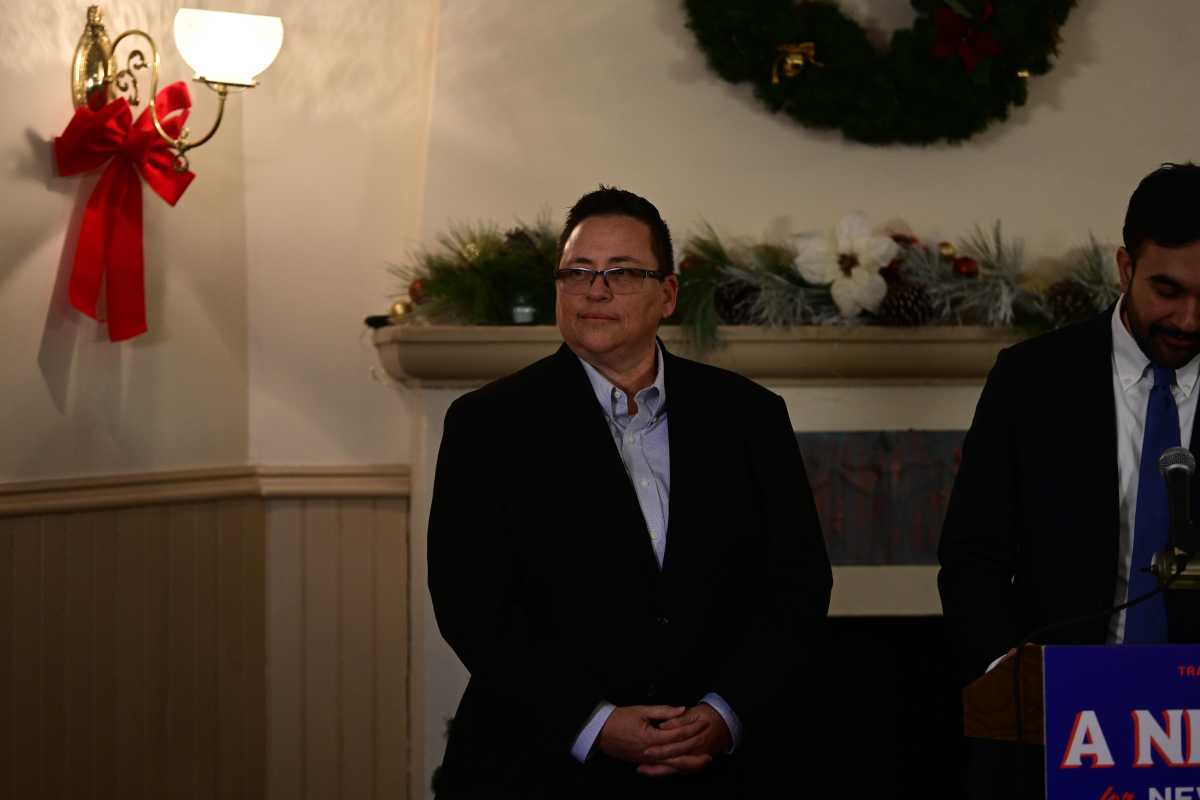California appeals court finds trial judge failed to show detrimental effects of custody
A unanimous panel of the California Court of Appeal ruled on February 23 that a trial judge in Kern County, where Bakersfield is located, used the wrong legal standard when he refused to release two children from foster care into the custody of their lesbian mother.
The children had been removed by social services officials from their father’s home, but the trial judge thought they would be better off in foster care than being “exposed” to their mother’s “alternative lifestyle,” a conclusion with which the appellate court sharply disagreed. The court’s opinion did not specify the author from among the three-judge appellate panel.
Kimberly R., as the mother is identified in court papers, divorced Joseph, the father of the two children, Natalie, age 13, and Andrew, age 11, in 1993, and as of last summer, the children were living with their father and his third wife, that couple’s two younger children and the new wife’s teenage son from a prior relationship.
“Regrettably, Natalie and Andrew’s father was physically abusive and his apparent alcoholism only worsened his abusiveness,” according to the appeals court ruling. “He physically and psychologically abused Andrew, his wife, and her teenage son. When the [Kern County Department of Human Services] investigated the situation in the family home, information also developed that the father may have sexually abused Natalie. It was undisputed that the father and daughter sometimes slept together. There was also information that yet another son of the father’s, who was now dead, had been sexually molested by a third party and subsequently that son had sexually molested Natalie, Andrew and others.”
Based on these findings, the county initiated court proceedings in which Natalie and Andrew were taken from their father and placed in separate foster homes.
The department then tracked down their mother, Kimberly. She was living with her lesbian partner, along with her partner’s father, who was dying, and two children for whom the partner was legal guardian. Kimberly had also raised four grown children no longer living with her. Although she had a history of drug and alcohol problems, Kimberly has been sober for several years and had no record of child abuse complaints against her.
Kimberly informed the county of her willingness to assume responsibility for Natalie and Andrew, and the human services department recommended they be released from foster care into her custody.
Joseph opposed placing the children with his ex-wife, primarily based on his objections to them living with a lesbian couple. A court-appointed lawyer representing the children’s interests also opposed the placement, claiming the home would be too crowded and that Kimberly lacked adequate financial resources.
The appeals court’s summary of the trial record, however, makes clear that Kimberly’s biggest obstacle was from the trial judge, who reflected a bias against placing children into a lesbian household. During his questioning of a county social worker, the judge seemed preoccupied with the idea that if the children were placed with Kimberly, they would be subjected to teasing and harassment at school. Having suffered trauma in their father’s home, the children needed to be sheltered from any exposure to “non-traditional” influences, the judge reasoned.
The county human resources department’s written report apparently avoided going into detail about a child welfare complaint against Kimberly’s partner concerning her two wards. The judge seized upon these “failings” in his questioning of the social worker. After a heated back and forth on this point, the judge asked the county social worker, “What did you do to consider the best interest of the children in this particular relationship where you had a person who was on SSI, living with the other individual? You have a history of sexual abuse, apparently, in this family of these children. And now you have at least something that would be considered out of the mainstream sexual relationship between two people, right?”
The social worker pointed out that both Natalie and Andrew had expressed a preference to live with their mother, but the judge asked whether Natalie, who had at first voiced uncertainty, had been asked “what her friends would say when she has two parents who were lesbians” and “what she would tell them?”
The social worker conceded she had not discussed this issue with the girl.
The judge’s decision against Kimberly was based on the children’s “best interest,” but the appeals court found the trial court had applied an incorrect legal standard. When the choice of custody is between two fit parents, the standard is the “best interest of the child.” But when the choice is between a legal parent and foster care, the issue is whether there is evidence that the children would be harmed by being with their parent.
“Several of our appellate courts have held [that] because a non-offending parent has a constitutionally protected interest in assuming physical custody, as well as a statutory right to do so, there must be clear and convincing evidence such a placement would be detrimental to the safety, protection, or physical or emotional well-being of the child before a court may properly refuse a parent’s request,” the court wrote.
But rather than providing evidence of any detrimental effect, the trial judge offered what came very close to a diatribe: “I don’t care what the new generation is saying about we have to accept this. And you know what, I don’t know that people have to accept it, especially children, when it’s going to have a detrimental effect in their life and they’ve expressed a desire not, initially, to go into that type of environment… I think we can cut out that issue of the relationship of the mother with her lesbian partner. But there are so many issues here that really trouble the Court, placing these children in that type of environment.”
The appeals court found that there was no evidence to support the judge’s assumption that it would be detrimental to the children to live with their mother and her partner. The trial judge committed “prejudicial error,” according to the appellate panel and that the correct remedy was to place the children with Kimberly.
The sharp criticism of the trial judge, in fact, may explain why none of the three appellate judges signed the unanimous opinion.
gaycitynews.com

































